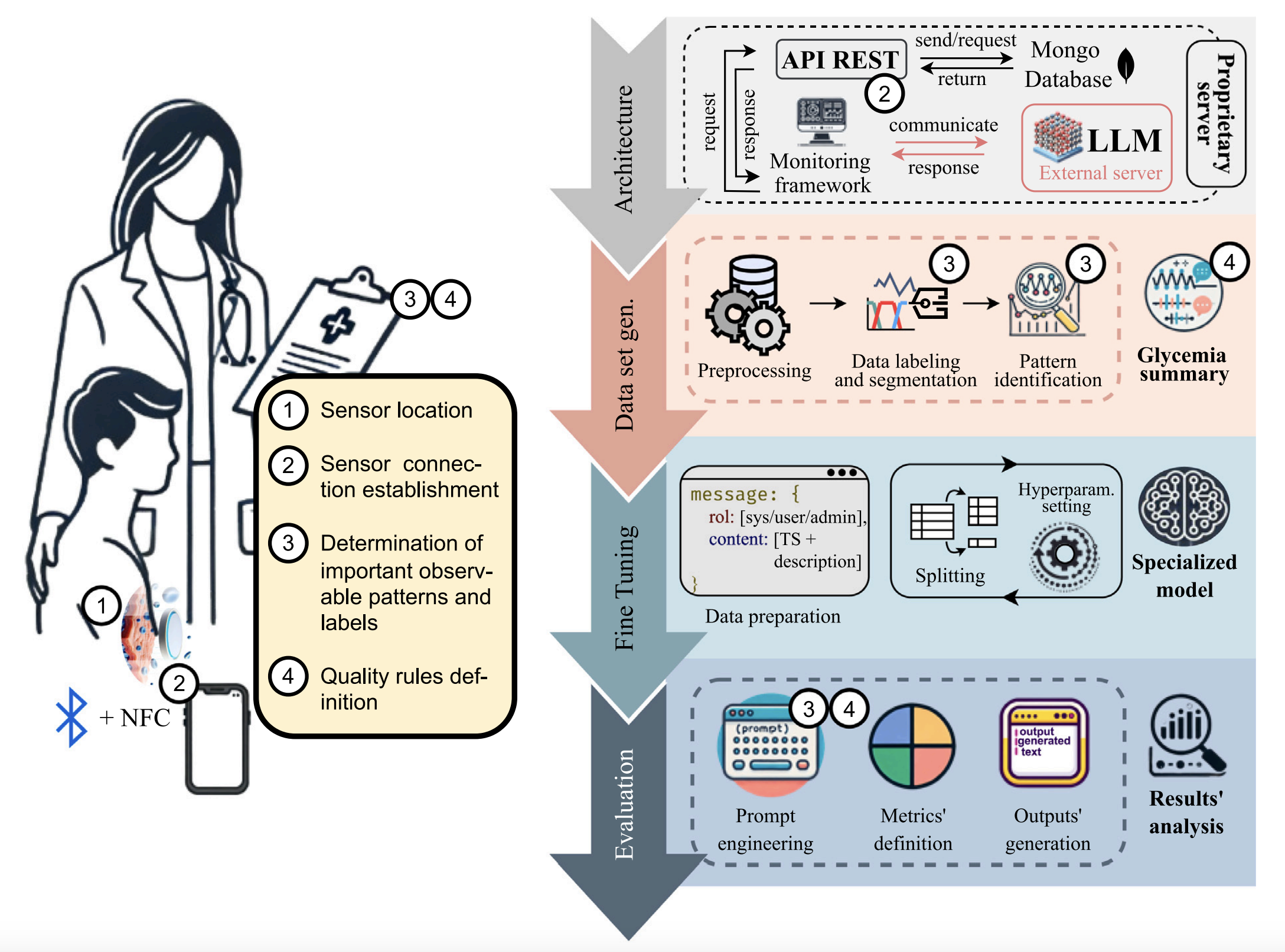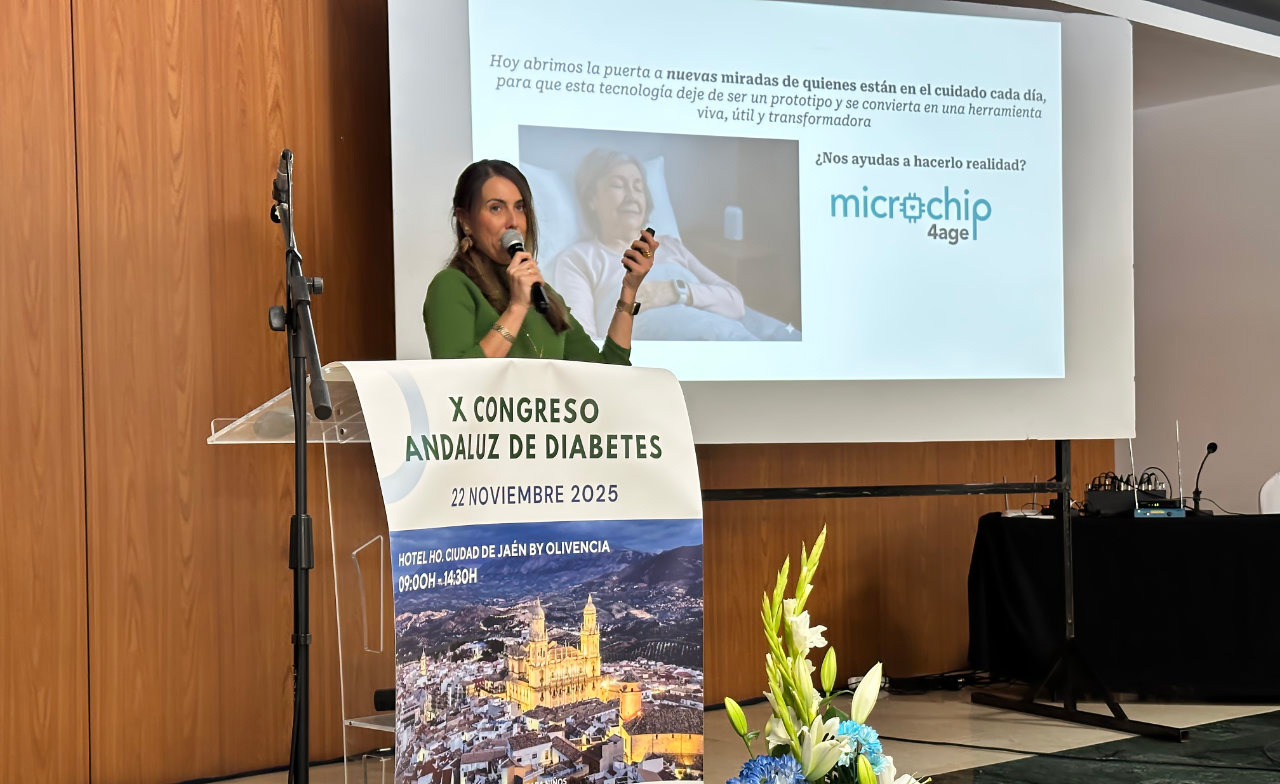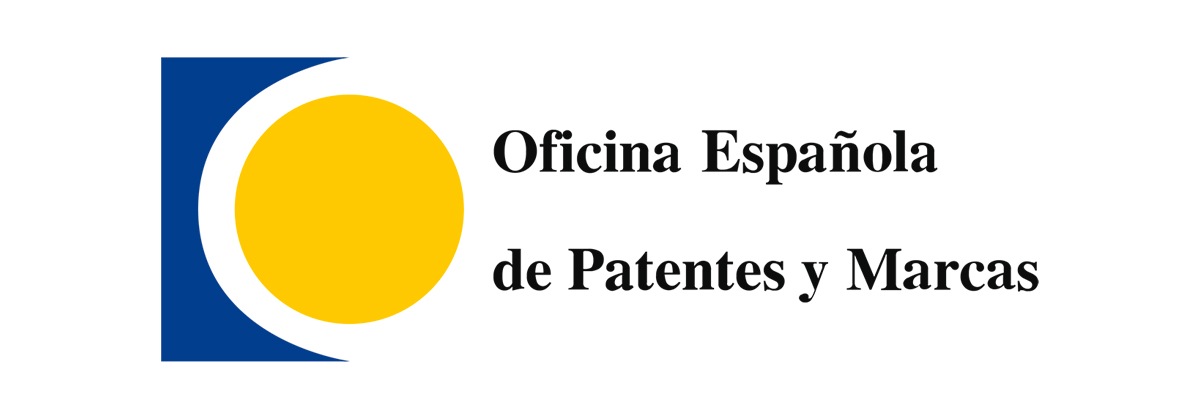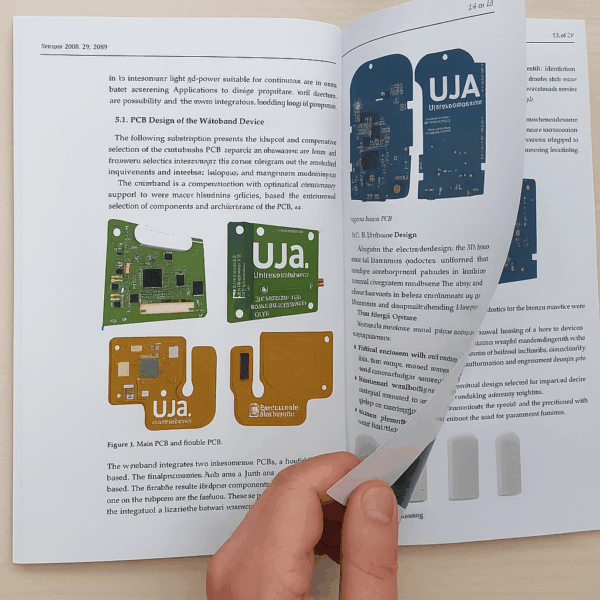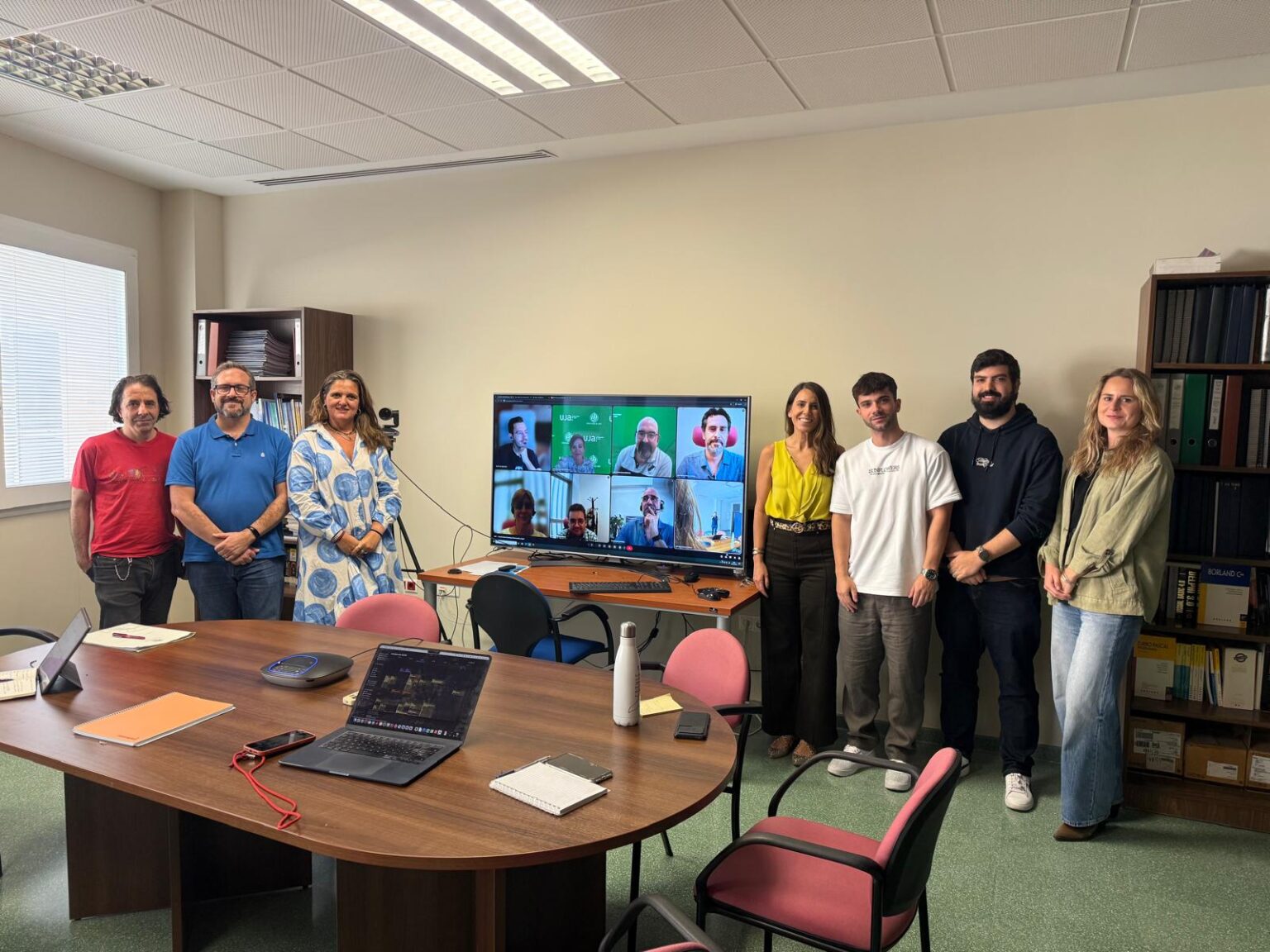The article introduces an innovative methodology to support people with diabetes—and their caregivers—by adapting language models to the context of disease monitoring.
Jaén, June 2025 – The MicroChip4Age project team has made a decisive step forward in integrating language models with physiological data from diabetic patients. Their study, recently published in the scientific journal Computer Methods and Programs in Biomedicine, addresses the growing challenges faced by today’s society, particularly those affecting the diabetic community.
Titled “A novel fine-tuning and evaluation methodology for large language models on IoT raw data summaries (LLM-RawDMeth): A joint perspective in diabetes care”, the paper was developed by researchers Juan Francisco Gaitán Guerrero, Carmen Martínez Cruz, Macarena Espinilla Estévez, David Díaz Jiménez, and José Luis López Ruiz. The study aims to empower generative models to interpret data from continuous glucose monitoring devices in a way that is accurate, safe, and understandable.
Bringing Artificial Intelligence to Clinical Practice
The study introduces a methodology that combines expert knowledge, fuzzy logic, and advanced training techniques to adapt large language models to the domain of glucose monitoring. Far from simply translating raw data, the system identifies clinically relevant events and expresses them in natural language with a level of detail accessible to both professionals and patients
Additionally, a specialized evaluation framework is included to assess the informative quality, temporal accuracy, and safety of the generated content—aligning the model’s output with the high standards required in medical contexts.
A Groundbreaking Approach Based on Real-World Data
The models were trained on more than 48,000 real glucose measurements and their associated summaries, demonstrating the robustness of the approach in both fully populated and partially available data environments.
New Horizons Reached Through MicroChip4Age
This publication strengthens the methodological foundation of the MicroChip4Age project, proving that it is possible to build AI-driven solutions that preserve the traceability of clinical knowledge and the interpretability of language—key factors for the real-world adoption of such tools.

